President Dev: From the levers of power to Áras resident
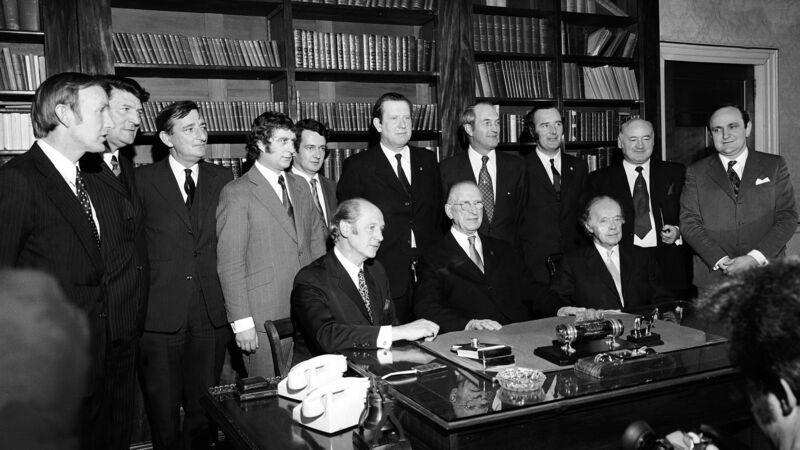
Taoiseach Jack Lynch and the cabinet of the 20th Dáil after receiving their seals of office from President De Valera at Aras an Uachtarain,in March 1973.
ON the morning of Wednesday, June 17, 1959, Ireland went to the polls in blazing sunshine, “to make vital decisions” on the future of the country, our headline said.
The Evening Echo’s lead story outlined those decisions: “Firstly, to choose between Mr de Valera and General Seán Mac Eoin as successor to President Seán T O’Kelly and, secondly, and of more far-reaching consequence, to decide whether or not to abolish the proportional representation system of voting, which has been in operation in Ireland ever since the State was established.”
O’Kelly, Ireland’s second president, was a founder member of both Fianna Fáil and its predecessor, Sinn Féin, and a veteran of the 1916 Rising, in which he had fought in the GPO beside Pádraig Pearse.
O’Kelly lacked tact, a fault that only worsened when he was in his cups, which was frequently, but his warmth and decency made him a popular president through his two seven-year terms.
According to Rule, the second volume of David McCullagh’s biography de Valera, by the time Fianna Fáil came back to power in 1957, Dev, then 75, had become almost a figurehead in government. Fianna Fáil had enjoyed a landslide that gave them a majority of nine seats more than the combined opposition, but the popular opinion was that de Valera was too old, and out of touch.
Almost blind, he could not read briefing documents, and deferred increasingly to his tánaiste — and eventual successor — Seán Lemass.
“There were advantages for Lemass in de Valera’s continuing rather inactively in office,” McCullagh wrote.
“Lemass had the effective power to direct public policy, and when he introduced changes, they were ‘cloaked by the apparent changelessness of the Chief’.
“He later claimed he urged de Valera not to stand for the presidency, preferring for him to remain taoiseach until he died, ‘in the expectation that he would not interfere with what I was doing, as he was not interfering anyway’.”
In November 1957, de Valera acknowledged his political mortality, telling the Fianna Fáil ard fheis that “I am quite aware that the years are passing … I know I am hampered considerably by the fact that I cannot read.”
However, he said: “As long as this organisation wants me, as long as Dáil Éireann thinks I am doing my work and can do it, then I stay.”
The day-to day business of politics ground on: Fianna Fáil reintroduced internment without trial for IRA suspects, and published the Whittaker report, which called for a radical departure from the economic policies that had until then shaped the State. The report’s implementation would revolutionise the economy.
In December 1958, Independent TDs Noël Browne and Jack McQuillan put down a motion criticising de Valera’s holding of the office of taoiseach, while also being the controlling director of the Irish Press Group.
In the subsequent Dáil debate, it was revealed that de Valera and his eldest son, Vivion, had benefitted financially from the newspaper group, with Browne outlining how they had, since 1929, bought up close to 150,000 shares in the company, which was worth almost £1m.
The debate was adjourned, and the vote postponed until Thursday, January 14, 1959.
On Wednesday, January 13, Dev told the Fianna Fáil parliamentary party meeting he intended soon to retire from active politics, giving his successor time to prepare for the next election. He had, he said, been approached about the presidency, but he would leave the “matter entirely in the hands of the party”.
The January 14 vote on Noël Browne and Jack McQuillan’s motion passed comfortably in the government’s favour, 49 to 71, but it was overshadowed by the bombshell news that Dev was to seek the presidency.
The Evening Echo reported on election day, June 17, that: “Polling opened this morning under absolutely ideal weather conditions. From an early hour, the sun was bright in a cloudless sky and, by noon, the heat was intense, almost tropical.
“As is always the case on election day, there was little sign of activity around the polling stations in Cork in the first few hours. That is, of course, due to the fact that the great majority of the electorate cannot spare even the few minutes necessary to record their votes until they finish work for the day.
“Polling was slow in all the city locations, the bulk of the visitors there being housewives, who took time from their morning shopping to fulfil their duty to the State.”
The following day, our headline ran: ‘Country Awaits Decision Of Electors As Busy Staffs Count Votes’ above: ‘Huge Number Of Spoiled Votes,’ and ‘Many Support Mr de Valera But Want PR’.
“In 40 constituencies throughout the State to-day, the sorting and counting of votes cast in yesterday’s election and referendum were proceeding. As the poll was so low — in some cases little over 50% of the electorate — it was thought that preliminary figures would be available late this afternoon.
“It was stated at an early stage of the count in Cork that there were indications of a large number of spoiled votes in the referendum, many people not understanding the method of stating their preference, despite the elaborate guidelines given beforehand by the political parties. Later, word came from Dublin that the number of spoiled votes was huge.”
In the end, de Valera won the presidency by 56%, and the referendum — “of more far-reaching consequence” — to abolish PR was lost by 52% to 48%. As writer and broadcaster Breandán Ó hEithir put it at the time: “The people stuck with the devil they knew in both contests.”
On Friday, our headline ran: ‘Mr de Valera Elected President But The Nation Says No To His Policy On The ‘Straight Vote’.
“It was no surprise that Mr de Valera should receive a substantial majority in the presidential election, but the most notable feature of Wednesday’s voting is that so many people, while supporting the former taoiseach for president, should reject his policy on PR.
“Mr de Valera becomes president by 538,058 votes against 417,482 cast for General Seán Mac Eoin, but over 80,000 of his supporters voted for PR. Close on half a million people showed their determination not to accept the ‘straight vote’ in favour of the present electoral system.”
The following day, the Evening Echo quoted the New York Times. “Mr Seán T O’Kelly was described as ‘the perfect President of the Irish Republic’ by the New York Times today in an editorial which said it was ‘strange to feel a sense of regret, as if at the passing of an era, now that Éamon de Valera has become president’.”
The New York Times said of O’Kelly: “Only the Constitutional prohibition on a third term prevented him from continuing in his post, as everyone would have liked. There, indeed, is Ireland in the flesh and at its best.”
Of Dev, it said: “He has exemplified for more than 40 years and more than any individual Ireland … for 21 years he was head of the Government; now he is the head of the State”.
(The 21 years covered his time as president of the Executive Council — in effect taoiseach —from 1932 to 1937 and then as taoiseach from 1937 to 1948, 1951 to 1954, and 1957 to 1959. He would likely have noted he was also president of Dáil Éireann from 1919 to 1921, and president of the Irish Republic from 1921 to 1922.)
Dev did not leave office easily.
According to Ronan Fanning’s Éamon de Valera: A Will to Power, “His private secretary, Pádraig Ó hAnnracháin, recalled how, when the photographers were waiting for him to leave Government Buildings for the last time, de Valera asked for a moment alone.
“After some time had passed, Ó hAnnracháin re-entered his office and found the taoiseach with his arms wrapped around the switchboard through which he could communicate with ministers, heads of departments, the army, and gardaí at the flick of a switch.
“There were tears in his eyes. ‘Oh, Pádraig,’ he exclaimed. ‘It’s awfully hard to leave the levers of power.’”
President de Valera went on to serve two terms. In 1963, he hosted John F Kennedy in the Áras, and months later attended JFK’s funeral in Washington. In 1966, Dublin’s Jewish community recognised him for his support, planting the Éamon de Valera Forest near Nazareth. In 1969, on the 50th anniversary of Dáil Éireann, he became the first president to address both houses of the Oireachtas.
His message of goodwill on behalf of the Irish people to Nasa on the first lunar landing still rests on the moon: “May God grant that the skill and courage which have enabled man to alight upon the moon will enable him, also, to secure peace and happiness upon the Earth and avoid the danger of self-destruction”.
When Éamon de Valera finally retired, on June 24, 1973, at the age of 90, he was the world’s oldest head of state. He died on August 29, 1975.
Irish voting system introduced by British prime minister to hinder Sinn Féin
In 1959, the Fianna Fáil government attempted to pass the third amendment to Ireland’s Constitution, to change the electoral system from proportional representation under the single transferable vote (PRSTV) to first past the post (FPTP).
The referendum was held on June 17, 1959, the same day as the election in which taoiseach Éamon de Valera became president. Fine Gael and Labour opposed the referendum, likely realising they might never see office again if it passed, and it was narrowly rejected, by 52% to 48%.
PRSTV was introduced by British prime minister David Lloyd George’s government in the 1919 Local Government Act of Ireland.
Under British rule, Ireland had used the FPTP system that is still in operation today.
Under FPTP, voters typically give their preference to one candidate and the candidate with the most votes, a plurality, wins, regardless of whether they have more than half of the votes, called a majority.
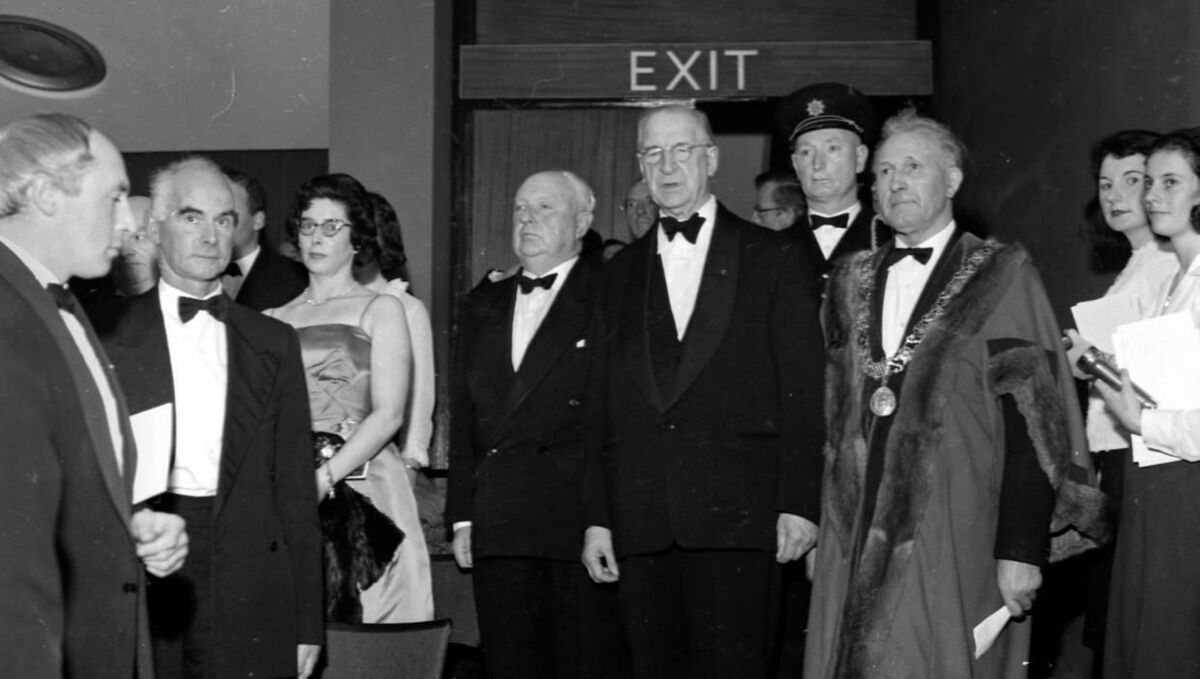
The First World War from 1914 to 1918 meant that when Ireland voted in the UK general election of 1918, it had been eight years since the electorate had had their say. In that election, and in the aftermath of the executions following the 1916 Rising which saw public sympathy swing toward the rebels, support collapsed for the moderate Irish Parliamentary Party, which had been the dominant force in Irish nationalism for three decades.
Sinn Féin, under FPTP, enjoyed a landslide, winning 73 of 105 seats, or 69.5%, with only 47% of the vote. Seeking to stymie Sinn Féin, Lloyd George’s government introduced PRSTV in local elections.
Under FPTP, there is one representative for everyone in a constituency, but under PRSTV, a larger constituency elects a small team of representatives, meaning that results more closely reflect the intentions of the electorate.
Sinn Féin recognised PRSTV as a tool of empowerment, and that voting system was first used at the local level in Ireland during the 1919 Sligo by-election, and subsequently in the 1920 local elections. Under the Government of Ireland Act 1920, it was prescribed for all elections here.
The Constitution of the Irish Free State, adopted on independence in 1922, prescribed proportional representation for elections to Dáil Éireann, and the 1937 Constitution of Ireland similarly enshrined PRSTV.
As David McCullagh notes, when de Valera introduced legislation for his referendum in 1959, the Fine Gael and Labour leaders, John A Costello and William Norton, took the unusual step of opposing the first reading of the bill.
“In his second-stage speech, de Valera had to answer the awkward question: Why, if PR was such a bad thing, had he insisted on including it in the Constitution and specifying the single transferable vote, against the advice of Costello himself?
“Naturally, it wouldn’t do for de Valera to admit that he had been wrong, so he listed a number of reasons: He wanted to leave the existing electoral system in place in order to minimise opposition to the Constitution; if he hadn’t specified PRSTV, successive governments would have tried to choose a system of PR that would benefit themselves, and putting it into the Constitution meant that people would have the right to decide their electoral system.”
(It has been suggested that de Valera championed a return to FPTP because he feared a resurgence of the then latest splinter of Sinn Féin.)
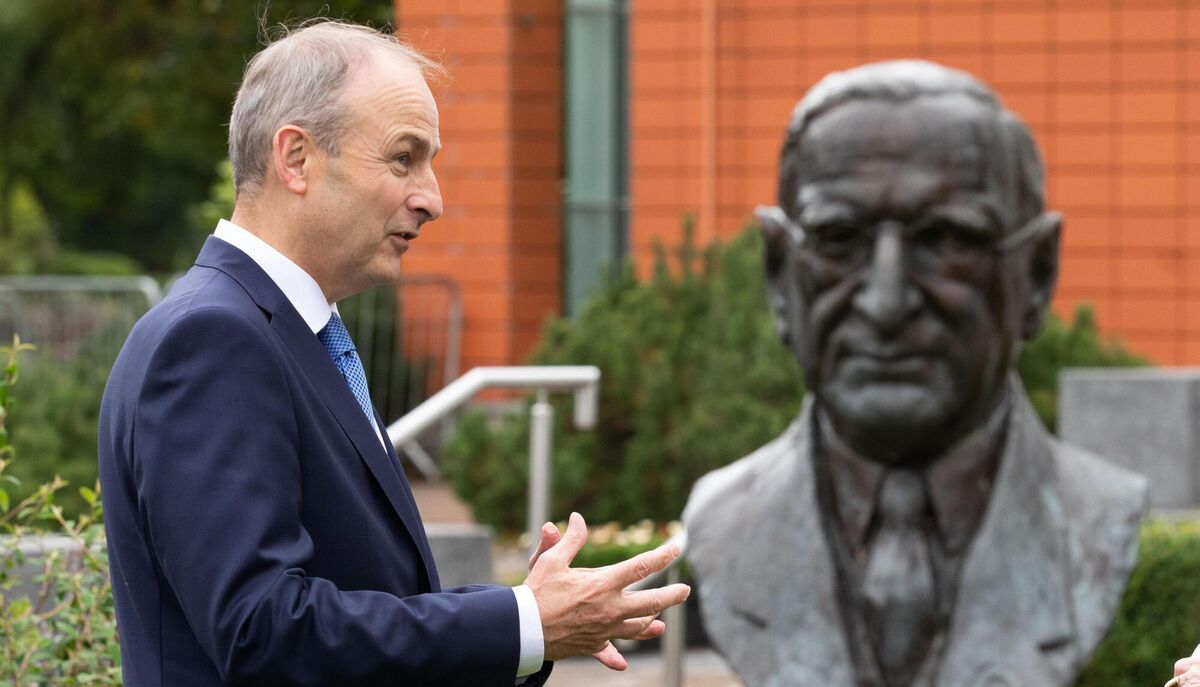
A decade after the proposed third amendment was rejected, Fianna Fáil tried again, with a second referendum on the same issue held in 1968. This time, it was resoundingly rejected by a margin of 61% to 39%.
Nowadays, we use the PRSTV system in every election on the island of Ireland, with the exception of Northern Ireland’s general elections to the UK’s Westminster parliament.
In truth, perhaps not too many of us could easily explain exactly how preferences are distributed under the single transferable vote when it’s gone midnight in Nemo and you’re on the 17th count. That happened last November, when the final seat in Cork North Central was in the balance, with only 35 votes between the sitting People Before Profit-Solidarity TD and his young Labour Party challenger.
Still, it would be a brave politician that would suggest changing the system now.
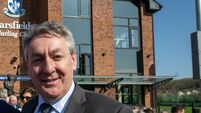
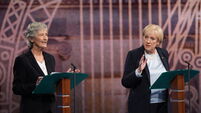
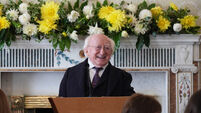


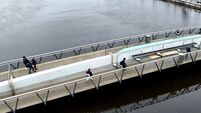




 App?
App?


